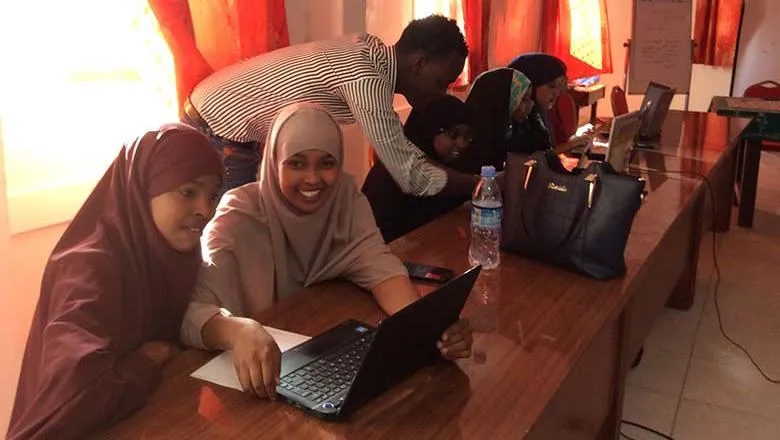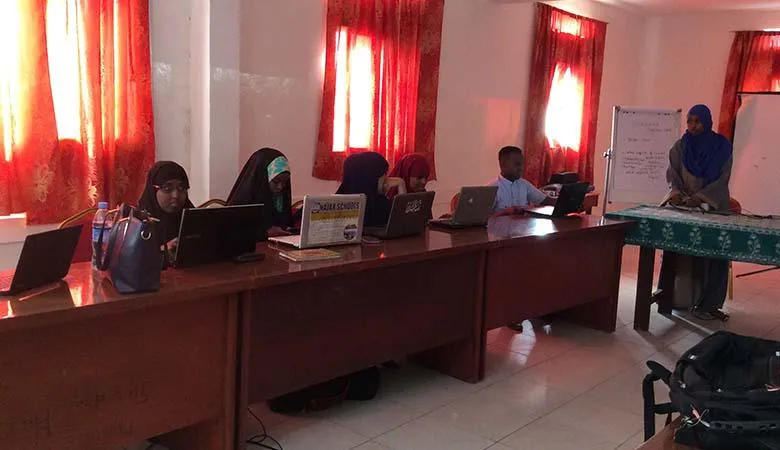The success of this adjustment to current climes has resulted in the King’s Somaliland Partnership wider team working together to plan innovation adaptions for future modules.
Sarah Curr and Joanna De Souza
11 May 2020
Adapting assessment in these challenging times: thoughts from an international partnership
Sarah Curr and Joanna De Souza
Delivering teaching and assessment in Somaliland during the pandemic

The King’s Somaliland interprofessional MSc Health Professions Education Programme, was set up as part of a wider educational partnership to support infrastructure development in Somaliland and is now in its fourth year of a five-year DFID grant programme. The MSc programme is hosted by three Somaliland universities but is co-developed and delivered by staff working in the King’s Health Partnership. The students undertaking the course are faculty and clinicians who deliver accredited health care professional undergraduate courses such a medicine, nursing, dentistry, pharmacy, public health and laboratory science.
The MSc programme has consistently used a blended learning approach with face to face teaching at the outset and the remainder of the module teaching delivery and feedback, provided over an online platform, Medicine Africa. As such adapting to remote teaching for module 7: an educational evaluation to improve teaching & learning, using the King’s College London educational evaluation tool kit, initially appeared straightforward. The teaching was delivered via the online platform using the standard format of one lecturer delivering synchronous teaching and one managing the chat for questions and discussion which has consistently worked well. Each session was also recorded to mitigate against the unpredictable WiFi instability that can occur. This also allowed students to return to the lecture multiple times to consolidate learning as required. Students were familiar with this form of content delivery from previous modules.

Whilst these lectures adapted well to being delivered online when a face to face teaching trip was cancelled there were concerns about managing group work and the assessment of the module. At first the lecturers considered removing the group work activities but through discussion with the technical support team, students were assigned to breakout rooms (available within the medicine Africa programme) with lecturers moving between the rooms, just as they would move between groups in a classroom, and the learning outcomes were easily achieved.
The main hurdle was the assessment, a poster presentation which had a combination of peer and tutor assessment. The previous year the students presented their posters to their peers who all marked each poster and presentation using a marking grid. The two faculty also marked the posters and a combined mark was awarded. This was clearly not achievable with the current restrictions. After initial discussions the assignment was adapted to a narrated presentation, via PowerPoint and submitted online via the learning platform.
The students were instructed on the logistics, through a synchronous recorded lecture and a narrated PowerPoint, with step by step instructions. Although the logistics were initially daunting this assessment was successful, with 15/20 successful posters submitted, of which 12 had audible audio. The process of peer marking is still ongoing.
Ultimately this daunting adaption fostered a comradery between students as staff as all became learners and equally invested in the module’s success.
Sarah Curr and Joanna De Souza are the module leads for an educational evaluation to improve teaching & learning.
Find out more about the King's Health Partners Somaliland Partnership
